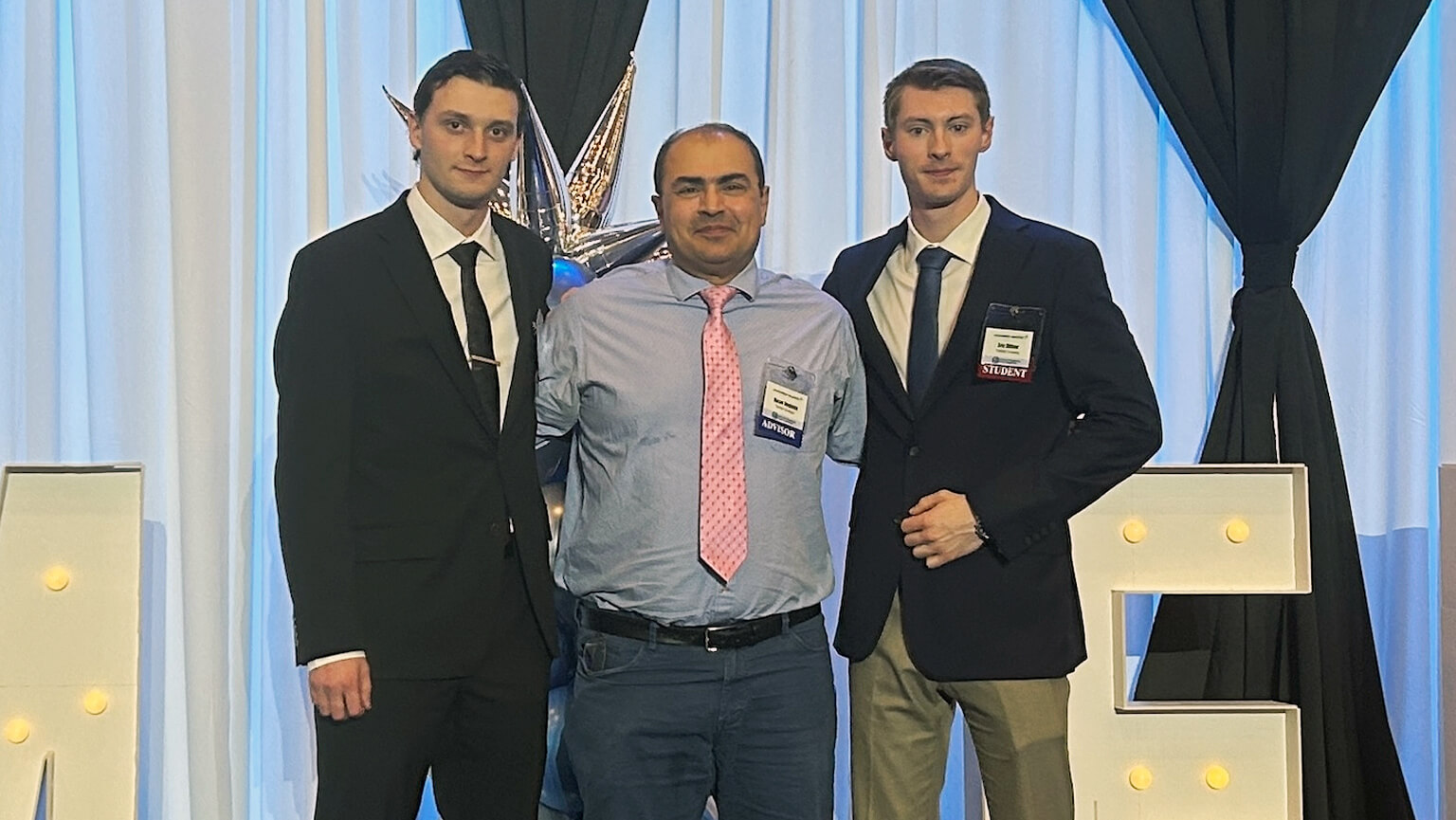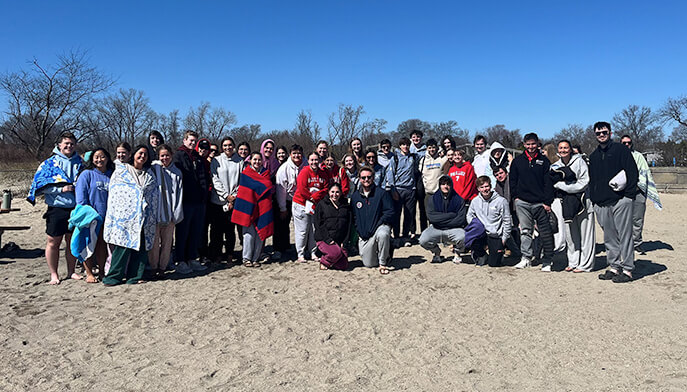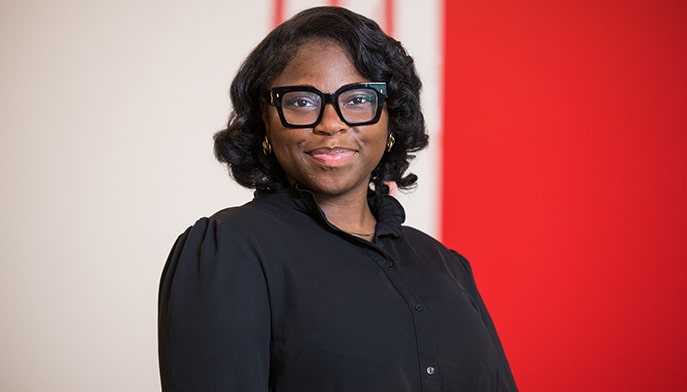In March 2025, mechanical engineering major Eric Dillner ’25 and electrical engineering major Stephen Borrelli ’25 showcased their knowledge and skills on a national stage at the Lockheed Martin Ethics Competition. Representing Fairfield, the students demonstrated their ethical reasoning and strategic decision-making, advancing all the way to Round 5 in a competition that tested their ability to navigate real-world problems.
Dillner and Borrelli’s involvement in the competition began with encouragement from past competitors. “Stephen and I are friends with last year’s competitors, John Chiodo and Megan Rourke, who were the first-ever Fairfield team to attend the competition,” Dillner explained. “Dr. Haghbin, along with John and Megan, approached me and encouraged me to participate, believing I would be a great fit. I was incredibly honored to be considered for a competition of this caliber.”
Dillner and Borrelli’s preparation process was intensive. “We dedicated significant time to preparing for the competition,” Dillner said. “We held weekly meetings where we reviewed the previous year’s case study and competed against our advisors, who had participated last year. They helped us anticipate what to expect at the Lockheed Martin Center for Leadership and Excellence (CLE).”
Borrelli described their approach. “As Eric mentioned, we first prepared using last year's case study to get a sense of what to expect and the type of research that was required to build our solution. Once we got the new case study, we did a deep dive identifying all of the technical and ethical problems that we could identify. We then discussed with our advisors and peers how we could organize all these problems and address them in the match. From this point forward, we focused on how we could solve each problem and finding evidence to back all of our solutions.”
Once they received the 2025 case study a month before the competition, they followed a structured timeline. “We spent the first two weeks analyzing the topic and identifying the relevant ethical codes. The final two weeks were focused on structuring our discussion plan and conducting mock competition rounds against our advisors,” Dillner explained.
The competition revolved around a real-world issue: How should AI be integrated into crisis management while maintaining public trust and safety? Dillner and Borrelli grappled with the risks of automation errors, the importance of human oversight, and the ethical implications of AI in life-or-death situations.
“The competition format is different from what most people might expect—it’s less of a debate and more of a structured business discussion between executives from two companies,” Dillner explained. “A coin toss determines which team represents each company. The round begins with each team giving a five-minute introductory statement, followed by a 15-minute discussion. The judges then conclude the round with a five-minute Q&A session.”
The objective was not to argue but to collaborate. “The goal is to develop an ethically and scientifically sound solution that both companies can support. Every round followed this structure, but on the second day, a twist was introduced—an unexpected ethical dilemma was added to the case just 15 minutes before the round, forcing both teams to adapt quickly.”
Beyond the debates, the competition provided unique opportunities for learning and networking. “There were several exciting extracurricular activities, including Lockheed Martin’s F-35 flight simulator, resume workshops, elevator pitch workshops, and inspiring guest speakers,” Dillner said.
“One of the highlights was hearing from astronaut Suni Williams, who joined us live from the International Space Station! She gave us a virtual tour of the ISS and answered our questions about life in space, which was an unforgettable experience.”
Reflecting on the event, Assistant Professor of the Practice Mechanical Engineering Naser Haghbin, PhD emphasized the transformative impact on the students: “In just two days, I saw them evolve from cautious and reserved to confident and persuasive. The ability to engage in high-intensity, real-world ethical discussions is an invaluable skill that will serve them well in their careers.”
Fairfield’s team reached the top 16 in the competition. “It feels amazing!” Dillner shared. “This is the furthest a Fairfield team has ever advanced in the competition, and we’re incredibly proud of our achievement. We hope to mentor the next team and help them go even further, just as our mentors did for us.”




